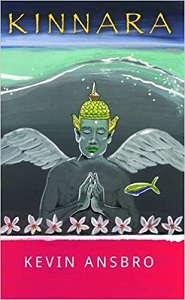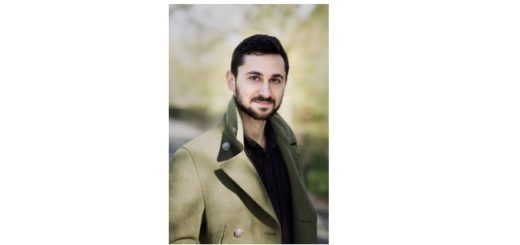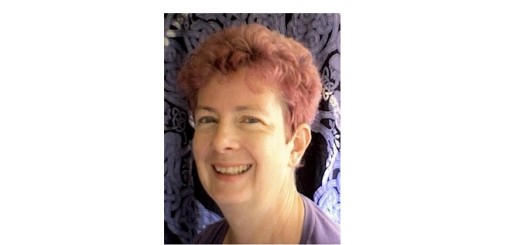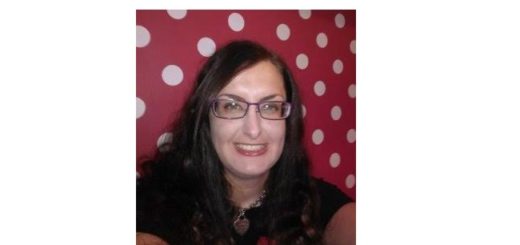The Writing Life of: Kevin Ansbro
Kevin Ansbro
This week on ‘The Writing Life of:‘ I am thrilled to be interviewing author Kevin Ansbro. Kevin will be sharing with us detail of his writing life, telling us all about his latest book ‘Kinnara’, which was released on 31st May 2015, and answering a few fun questions too.
So without further ado I’ll hand you over to Kevin. Post contains affiliate links.
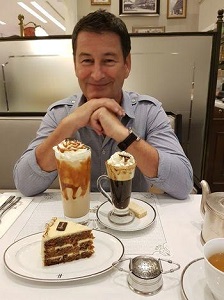
I was born of Irish parents, and have lived in Malaysia and Germany.
My formal education was at Hamond’s Grammar School in Swaffham, and at the Norfolk College of Arts and Technology (Stephen Fry being a much more famous former student).
Perhaps incongruously for an author, I have a background in karate and kickboxing and have also travelled extensively – particularly in the Far East.
I’m married (to Julie), and currently live in Norwich, England.
Stuff about me: I’m a foodie; I value good manners, love and friendship above all else; I am constantly putting my foot in it: I love to laugh, but sometimes do that ‘snorty pig’ noise when I do!
I’m also easy-going and extremely friendly; come on over and have a chat – I’ll put the kettle on!
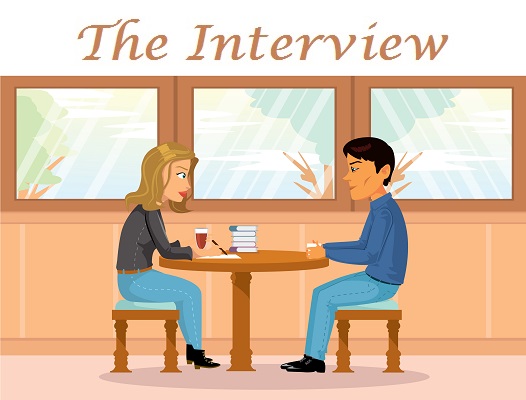
1) As a child what did you want to do when you grew up?
Like any sensible schoolboy I wanted to be James Bond, or perhaps Magnum P.I., but swiftly realised that achieving good qualifications in English Literature wasn’t going to propel me into a life of affluence and glamour.
2) Who were your favourite childhood authors?
As a child, E. B. White, C. S. Lewis, Hans Christian Andersen.
As a pre-teen, I adored Charles Dickens, Gerald Durrell, Tom Sharpe, and James Herriot.
My literary tastes then moved on to Shakespeare, Steinbeck, Hemingway, Graham Greene, and Thomas Hardy. Gabriel García Márquez and Salman Rushdie are my biggest influences.
3) At what point in your life did you realise you wanted to be a writer?
‘Wanting’ and ‘becoming’ are conjectural. I ‘wanted’ to become a writer, just as I wanted to become a professional footballer, or a debonair secret agent. I was lauded by my English teachers and even won a national poetry competition, aged fourteen, but never thought to pursue writing as a career.
I was one of those annoying people who would read a bestseller and grouch, “God, I can write better than this!” To which my wife would say, “Well, why don’t you then?”
4) How did you go about following that dream?
I only became a writer when I wrote a short story as a distraction from having to deal with my mother’s descent into the fog of dementia. I was surviving on just three hours of sleep each night and her care was overriding everything.
The book was my wife’s suggestion and it proved to be a cathartic endeavour. After my mum’s death, the story got me noticed and set me on this authorial path. A silver lining to a very dark cloud.
5) What is your writing day like? Do you aim for a certain amount of pages or words before you stop for the day?
I often see authors on social media proclaiming that they’re aiming for a certain amount of words each day, but how can that be art? Surely that’s quantity over quality?
I’m extremely disciplined when it comes to writing and type from 5 a.m. until 5 p.m., four days a week. Word counts don’t come into the equation; I write with as much care and splendour as I’m able and only stop when my brain curdles or my tummy growls at me.
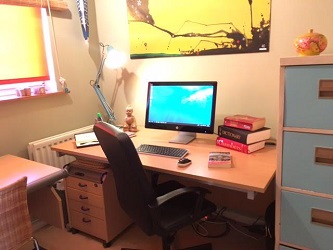
Where Kevin Writes
6) Did you ever consider writing under a pseudonym?
Yes! Lancelot Mustang and Rooster Hipthrust were worthy considerations, but I elected to wave my anonymity. I would hate to proudly say to someone, “I wrote that,” only for them to reply, “Yeah, of course you did!”
7) Do you have any strange habits before starting, or whilst in the midst of writing?
I visualise my next passage of writing at the start of each day, rather than attacking the keyboard with the spontaneity of a chimpanzee. When I wake up, and while I’m still lying in bed with my eyes closed, I run through the composition of the next part of the story, conceptualising the task ahead, allowing it to become clear in my mind. I find that this sharpens my focus and often leads to a gem of an idea popping into my head.
8) Do you write longhand, typewriter, or on a computer?
With a novel in mind, I write a copious amount of notes over a period of a year (often leaping out of bed in the middle of the night to jot an idea down). The resultant stacks of desecrated notepads are then arranged into orderly piles which I pin to a large cork board. Then, the actual process of writing (i.e. typing) can actually begin.
It’s exhilarating to see my riotous collection of scribbled notes beginning to form cohesive paragraphs on a computer screen.
9) How many books have you written? Do you have any unpublished work?
I have written two books: The Angel in my Well, a short story, and Kinnara, a novel.
10) Are you a plotter or a pantser?
As you can see by my answer to question 8, I’m definitely a plotter, but within that framework, I do venture off piste, expecting the unexpected to happen. This way, wonderfully serendipitous accidents occur that I have no control over. So I’m a bit of both: a plantser in fact!
11) Do you read all the reviews left for your book(s)?
I’ve been extremely fortunate in that I haven’t received any negative reviews. I liken a book to a hotel on TripAdvisor. Too many bad reviews and no-one will want to go there!
Let’s be honest, a writer has only got him, or herself, to blame if their books are being routinely slated.
Concerning your latest book:
Publisher – 2QT Limited
Pages – 314
Release Date – 31st May 2015
ISBN 13 – 978-1910077542
Format – ebook, paperback

“Sawat, I want to go into the water…”
Phuket, Thailand, seemed to be the perfect getaway choice for Calum Armstrong: What he saw, and did, on that holiday proves to have far-reaching consequences; not only for himself, but also for those closest to him.
Beach vendor Sawat Leelapun is preparing for another day selling his wares to tourists…
In Germany, uncompromising Frankfurt detective, Otto Netzer, is leading the manhunt for a brutal serial killer who preys on heavily-pregnant women…
Neither Calum, nor the killer, yet realise that their destiny lies in the hands of a mythical creature who resides beneath the turquoise waters of the Andaman Sea.
Intriguing and exotic, with an undercurrent of wry humour, Kevin Ansbro’s début novel explores how our actions can come back to haunt us in the most unexpected ways.
12) Which do you prefer, a paper book or an eBook?
Oh, easy! A paperback of course! There are few better pleasures in life than the feel and smell of a new book. Plus I enjoy the thrill of chasing down an escaped page as it flutters down a tropical beach!
13) How did you come up with the names for your characters?
I look for names that suit a protagonist’s personality. Charles Dickens was a master at this. Bill Sikes’s name, for example, immediately identifies him as a nasty piece of work. And how could Scrooge be anything but miserly?
14) Can you give us an insight into your main character(s) life?, What makes them tick?
Calum Armstrong, a charismatic young man with a caring disposition and a short fuse, is innately a defender of the underdog. He travels to Thailand where his intervention in a needless attack on an old man has far-reaching consequences for himself and those closest to him.
My favourite character is Sinéad, Mother of Hannah, the lead girl in the story: she’s Irish, beautiful, confident, feisty – and wickedly funny (Inspired by my mother).
15) Which was your hardest scene to write?
One scene depicts the 2004 tsunami that hit the southwest coast of southern Thailand in 2004.
I have Thai friends who were lucky to have escaped its murderous path, and I endeavoured to write about it in a way that didn’t sensationalise the disaster.
16) How did you come up with the title of your book?
Rather improbably, a mythical creature appears in the book. The name Kinnara applies to a half-human, half-bird creature that is well known in Thai mythology.
17) Did you get a family member/friend to read your work before sending to the publishers?
Oh, absolutely! I would suggest to any writer that they develop a thick skin and ask for honest feedback. This is not the time for meaningless platitudes. I can guarantee that publishing editors and the reading public will be forthright, so why not look for the truth? One’s ego is the enemy of objectivity.
My wife, Julie, is a voracious reader and she’s the first person I turn to for an unvarnished appraisal of my work. Trust me, she doesn’t take any prisoners and has no qualms about letting me know where improvements should be made. This is just what a writer needs. Blowing smoke up someone’s ass will not help them in the long term.
18) What advice would you give to another writer?
– Don’t be a pompous, head-up-your-own-arse diva. Accept informed advice.
– Don’t believe your own hype.
– When you think your book is finished, it isn’t.
– If – after you’ve read/reread/rewritten and edited your book – and you still think it’s finished, it isn’t.
– A novel is a marathon, not a sprint.
– Find inspiration all around you. Life, movies, books, nature. It’s all there if you know how to look.
– Very few books can carry the weight of excess verbiage.
19) What did you do once you had written the final word in your book?
I’d like to say that I had a Cuban cigar and a chilled bottle of Dom Pérignon on standby, like James Caan’s character in the movie Misery, but once ‘finished’, I try to read the book as if I was reading it for the first time. There won’t be too many edits at this stage as I diligently edit at the end of every chapter.
20) What’s next for you, writing-wise?
I’m 72,000 words into my current work and keen to get back to it.
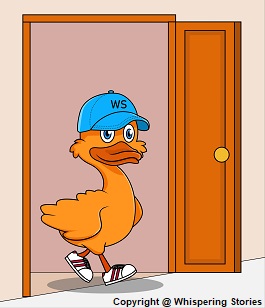
1) What’s your favourite food?
Thai food. Yum! But if I were forced to exclusively eat one cuisine every day for the rest of my life, it would be Turkish.
2) If you had a box of crayons and you could only choose one, which colour would you choose?
The black one. I wouldn’t be able to resist drawing a Poirot-style moustache on my face.
3) What movie could you watch over and over again?
A Wonderful Life.
4) What would be the top song on your playlist?
No Woman No Cry – Bob Marley
5) If you won millions, what would be your first purchase?
I have a lot of friends whose lives could be changed if I used the money wisely. I’m not into material possessions and derive pleasure from travel, good food, companionship and the arts. That’s where mine and my wife’s share would go.
6) A talking duck walks into your room wearing a baseball cap and sunglasses, what’s the first thing he says to you?
“Nǐ hǎo Kevin hěn gāoxìng rènshi nǐ.”
Translated, means: “Hello, Kevin, very pleased to meet you.”
(He’s evidently a Peking duck).
You can find out more about Kevin Ansbro by visiting the website/social media sites below.
www.kevinansbro.co.uk
@kevinansbro
Facebook
Goodreads
I would like to say a big thank you to Kevin for sharing with us details of his writing life, and for a wonderful interview.

